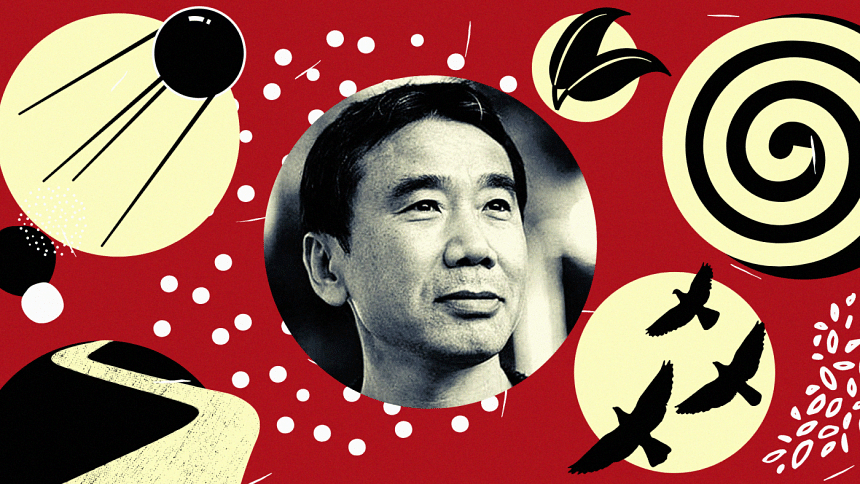Why Haruki Murakami resonates with young readers

Haruki Murakami is perhaps one of the most celebrated and well known writers of not only Japan but all of contemporary literature. His writing is humorous, hypnotic, and known to resonate deeply with the youth of every generation. But what is it about Murakami that gets young readers so enthralled? Is it the deadpan style of narration? The miniscule elements of fantasy rising out of the ordinary? Or maybe it's the absurdist sense of humour that has come to be a staple of Gen Z culture? If you asked me, I would tell you I didn't know. Not just because I didn't have the answer, but because Murakami didn't either.
Haruki Murakami, born in 1949, was part of the first generation of Japanese children born after the country's defeat in World War II. Japan, at that time, perplexed by their defeat, was about to embark on the largest socio-economic transformation in all of world history. By the time he reached his youth, Murakami found that the Japan he lived in was completely different from the one he was born into.
The 1960s brought about a time of great economic prosperity in Japan. The value of their currency increased exponentially, and the youth grew up paralysed by the silver spoons shoved into their mouths. With every material need met by a snap of the finger, their minds wandered to more philosophical questions: Who am I? What is my purpose in life?
Frustrated by their inability to find answers, and jealous of how the generation before them were able to draw meaning by participating in the war, the youth of Murakami's generation decided to bear all of their frustration into one of the largest student protests in Japanese history: the Zenkyōtō movement, which rebelled against the US-Japan Security Treaty. However, the youth behind the rallies weren't just a band of rebellious youngsters. They were confused and alienated individuals, crying out to their motherland, all in the hopes of figuring out what their country meant to them, what they meant to their country, and more importantly, what they meant to themselves.
Murakami, being part of the youngest generation to take part in the Zenkyōtō movement, grappled, first-hand, with the struggles of identity crises, and questions regarding alienation and identity loss grew to be prominent themes in many of his most popular books. For the first few years of his writing career, Murakami avoided giving his characters proper names at all. Though the main characters' names would be mentioned in passing, for the majority of the story, Murakami—in his detached tone—would have characters use first-person narration, referring to themselves as "Boku" (The Japanese equivalent of "I").
In Murakami's later novels, though his characters grew to have proper names, the psychological impacts of alienation and identity loss became increasingly bleak in his writing.
The use of magic realism, a trademark of Murakami storytelling, only furthers the themes of identity loss by presenting a world that, despite being brutally rooted in reality, does not deny the absurdity of everyday existence. The incorporation of magic into mundane settings allows Murakami to capture the uncertainty and confusion with which young people navigate their way through the world.
As a young Bangladeshi reader, I had a limited understanding of what the Japanese youth of Murakami's generation felt about losing their sense of national identity at the hands of Western capitalism. However, something I did relate to was the longing to feel connected to my country, be it through pleasure or pain. With 50 years under its belt, the Bangladesh Liberation War is something people my age have no personal memories of. With an independent country and endless possibilities, a new generation of youth are forced to tackle those same questions Murakami once did; what do I mean to my country and what does my country mean to me?
So, to come back to the original question, what is it about Murakami that hits so close to home for young readers? I'd argue that it is the unknowability of it all. It is about his stories having ambiguous endings, how the characters venture in search for answers only to end up having more questions, or the lingering confusion lying at the corner of every page. Murakami's writing effortlessly achieves what not many writers can: a shared connection with his readers about how life is a whirlwind in which there are far too many questions and never enough answers.
Shanjida Nowshin Chowdhury is an English major at the University of Liberal Arts Bangladesh (ULAB).

 For all latest news, follow The Daily Star's Google News channel.
For all latest news, follow The Daily Star's Google News channel. 








Comments